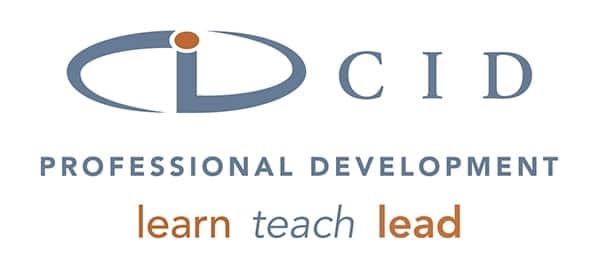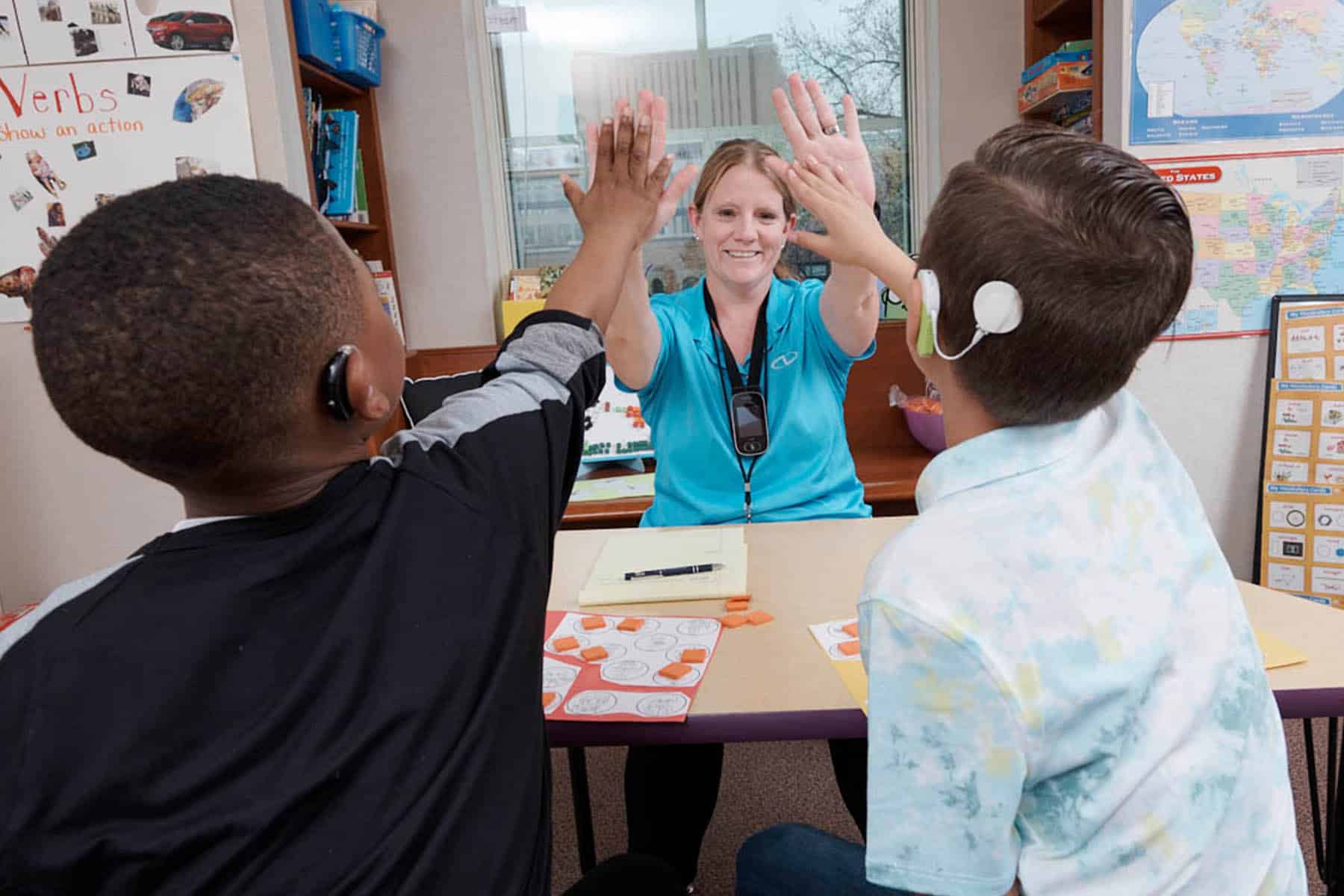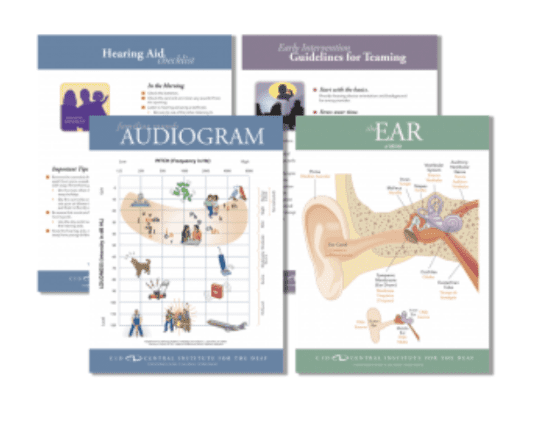When SLPs work with young children, they help mold speech skills. But with older children, SLPs usually need to break that mold because students may have developed bad habits. Older students are typically working at the connected speech/conversational level and continue to have articulation errors that affect intelligibility. They need to improve speech skills that will make them more intelligible to unfamiliar listeners, and they need to be held accountable for recognizing and correcting their speech errors.
A good way to hold older students accountable for their speech skills is to involve them in accomplishing their articulation, language and auditory IEP goals. First, talk about what an IEP and goals are. Then write each of their IEP goals in child-friendly language on a form similar to the one below and keep them in a speech binder specifically for that child. For the requirements section, the student can write how to meet that goal, for example, in a sentence, with a prompt, or by myself (independently). Speech sessions can focus on meeting that goal and collecting data towards it. Further involve the student by having her conduct a quick, informal self-assessment and compare it to yours. Record sessions if need be and watch them together. Have a conversation about the student’s strengths and opportunities for improvement and help her see the big picture.
Oftentimes, when students know why they are working on a goal and are involved in the process, it helps them understand and hold themselves accountable. Then hopefully, the process to break down the mold becomes easier.
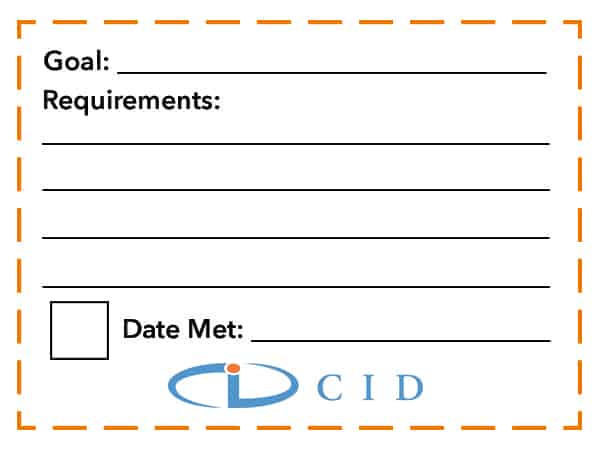
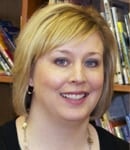
Jennifer Manley was a teacher of the deaf and associate coordinator of the Emerson Center for Professional Development at Central Institute for the Deaf- CID. Ms. Manley is co-author of the CID SPICE for Life auditory learning curriculum and author of the 2nd Edition CID SPICE auditory training curriculum.
